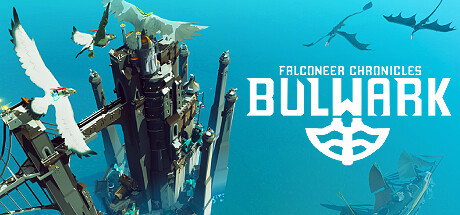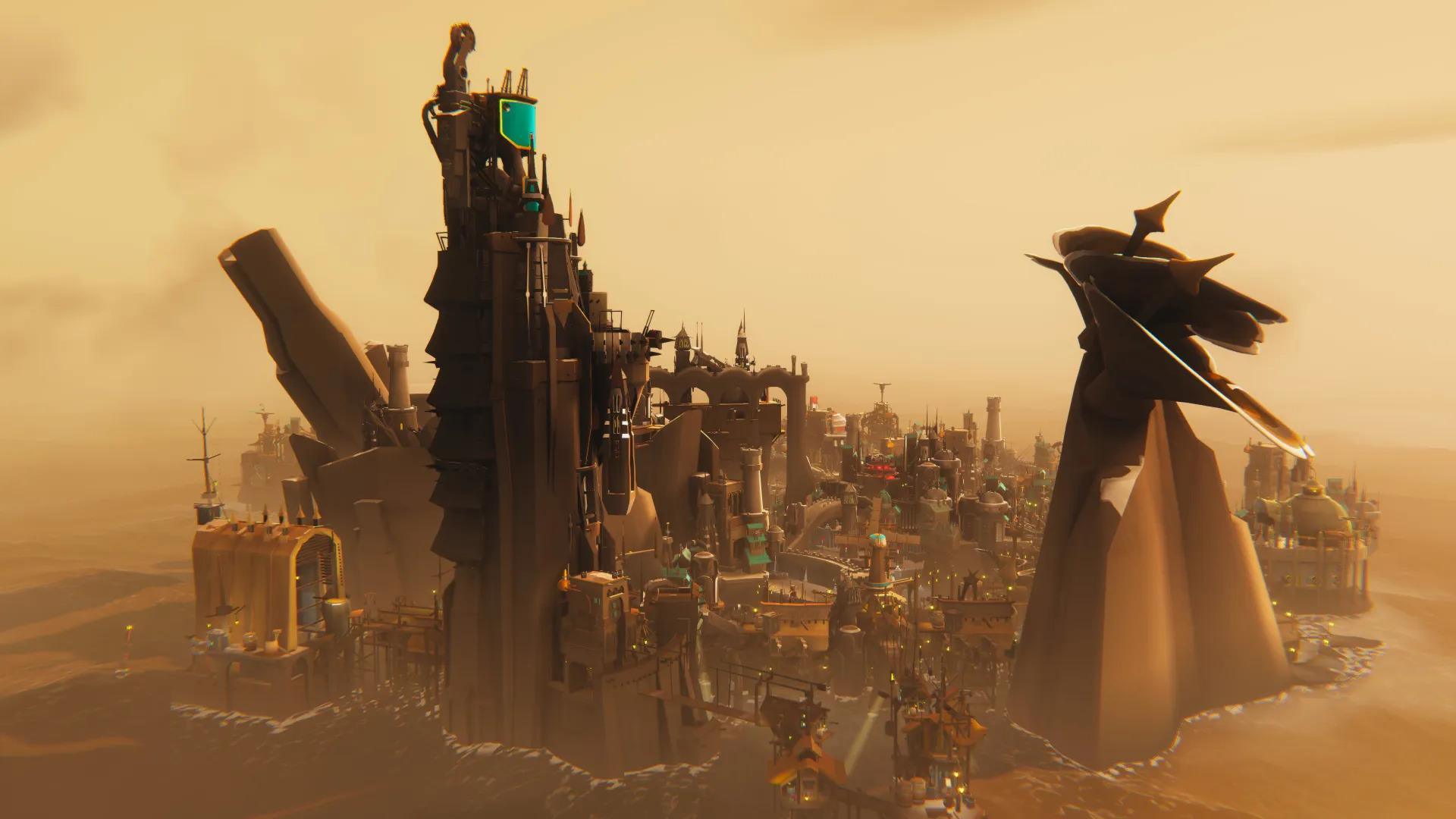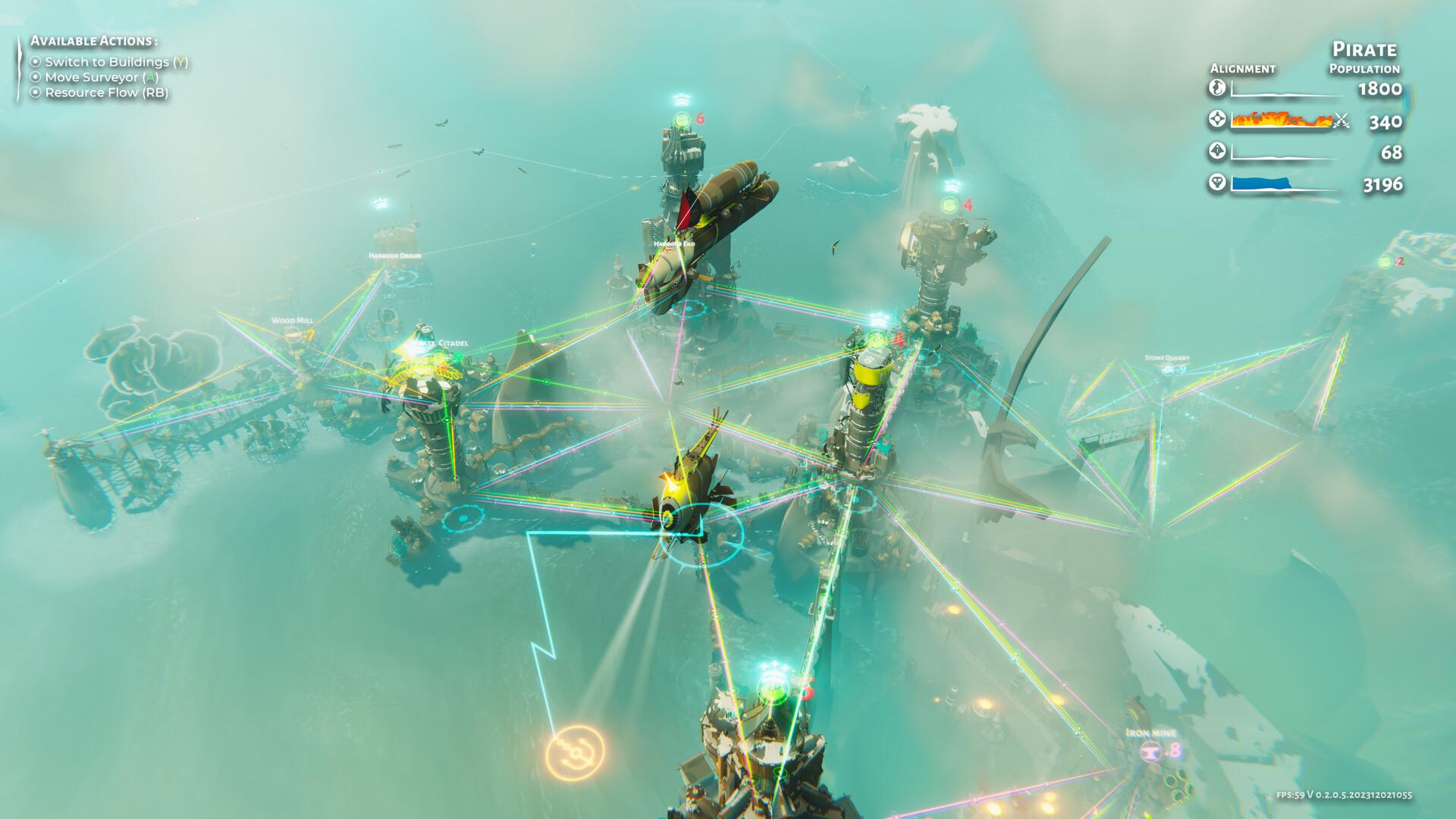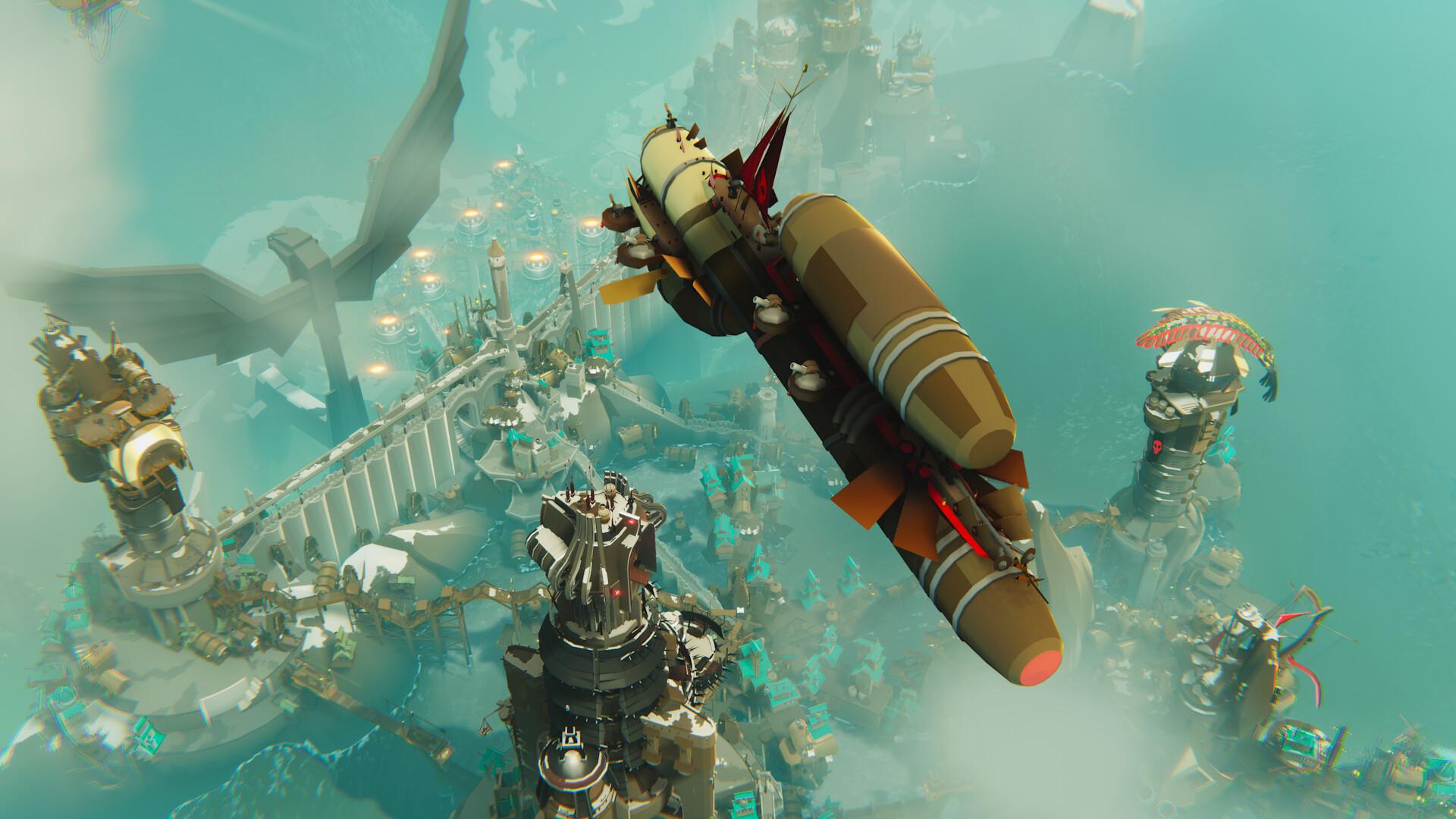Existing User Log In
New User Registration
Register for a free account to gain full access to the VGChartz Network and join our thriving community.





America - Front


America - Back

Tomas Sala
Simulation
 (Add Date)
(Add Date) (Add Date)
(Add Date) (Add Date)
(Add Date)
| Owners: | 0 |
| Favorite: | 0 |
| Tracked: | 0 |
| Wishlist: | 0 |
| Now Playing: | 0 |
Of all the indie developers that've soared since the dawn of this new console generation, Tomas Sala ranks among the most intriguing. Even if not the most popular, his affinity for classic PC genres makes it fascinating to see how close an ostensibly solo developer with a modern game engine can reach. With his first title – The Falconeer – capturing aerial dog-fighting on top of massive birds, seeing his sophomore effort put away the saddle and stirrups in favor of city-building and resource allocation may come as a surprise. But besides sharing the same universe, Bulwark also captures Sala's design ethos for city-building across The Great Ursee.
Decades after The Falconeer's conclusion, Bulwark's three separate campaigns follow three disparate factions navigating a post-war life. Although there is a story framework, it's more in service to capturing the hardened life across this oceanfront. Hardly anyone here seems to carry a house's banner; hell, over half the listed "factions" are essentially independent nomads still looking for a permanent home. And that makes sense within this backdrop. As you glide to and fro across the water, see the ruins of a once-proud statue half-swallowed by a watery ravine known as "The Maw," and stumble upon aquatic hamlets that’ve been set up in shallow waters, the melancholic mood subtly encourages the need to explore and restore civilization.
Turning such high hopes into reality is quite easy – even relaxing. As an unseen surveyor aboard an airship, you'll begin with a few disconnected structures; in all likelihood, you'll have a cluster of available workers, workable wood extractor, and stone quarry. With just a few control stick movements and button presses (which feel relatively smooth with a controller), pathways between each location can be connected, as well as new outposts and harbors for useful trade routes. And since everything is automated after lining up your clean UI grid, you witness new avenues and buildings erupt from the ground. There's an entrancing beauty to its simplicity: creating a spider's web of interlocking workers and materials woven together while any surplus heads to other islands. It's also one of the few games where seeing more of the game's systems, like the color-coordinated scanlines for each separate item, feels more immersive.
Whereas Freebuild Mode enables anyone to quickly go buck wild, Campaign Mode is – unsurprisingly – about building up from limited means to establish a grander territory. Resources require some toil and coordination in order to be put to good use; moreover, everything isn't in your immediate vicinity. As chief surveyor, you must venture out with your cadre of falconeers and shipmen to discover fresh mineral deposits and/or establish trade relations with other groups. From there, everything comes back to your logistical acumen: how should I establish new harbors to get my excess workers to this leader in exchange for iron? Past that, there's also the continual search for captains who can transport the necessary material, as well as gunships that can guard the riskier trade routes.
There's also the quagmire of socio-political relations to consider. Since each campaign/chapter sets you within a different faction, there are always novel tensions to consider – though most splits run between the more deracinated groups and the older orders. The best way of managing your social score is simply being a good steward even while growing in power and prominence: accepting refugees within your city walls, maintaining mutually-beneficial trade relations, and so on. As your cities and commanders continue increasing, so too does the variety and vibrancy of these cliffside fortresses. It may be subtle as first, but the small gradations to your locations, units, and so on just can't help but be admired with this rich art design. But there can be potential drawbacks in aggrandizing your station among so-called allies, potentially leading to open hostilities.
I’ll admit: all of these elements, through a streamlined foundation, initially capture a great tempo. Seeing a few button pushes transmogrify outposts into seaside castles running like well-oiled machines can capture a zen state, especially thanks to the visuals and Benedict Nichols' soundtrack. But the great presentation of these interactions can’t distract from diminished interest as time goes on. The thirst for exploration dries up (pun intended) as its pacing drags out potential new rewards. You can feel yourself subtly reined in by various elements in order to increase repetition. The supply of captains necessary to expand trade never keeps up with demand after exploring past your inner circle; moreover, the poor rate is exacerbated by what cargo each captain can manage. Excellent ones can haul everything, while some assholes can only handle wood or stone.
Establishing routes is quite simple: put down a harbor origin, an endpoint, and then assign trade and/or defense captains as you see fit (max of 3 per route). As the routes and captains balloon, remembering who was delegated to which task gets unwieldy. There should've been a separate menu featuring real-time info of each captain's designated path and ability to instantly reassign, rather than having to manually go to the correct harbor to dismiss/rehire for a different course. It feels like the monotonous paperwork an import/export coordinator would handle, rather than a surveyor. There's also the missed opportunity of not layering trade routes; instead of just a starting point and terminus, what about enabling the best shippers to take on multiple shipments at once and maximize productivity?
Trade also highlights how some of Bulwark's systems aren’t properly communicated to players. I respect a design philosophy encouraging players to heuristically discover mechanics past the tutorial, but it's clear Sala leaned too far in that direction since he's been compelled to release a couple of YouTube videos elucidating the finer details. Even after that research, I haven't discovered any concrete answers about combat beyond amassing more and more troops. Declaring war against any apprehensive outpost (regardless of faction) feels like a cake walk after getting modest numbers and kiting with your airship. Eventually no one stands a chance and I have no idea why. Again, I admire Sala's overall ambition, but nonchalantly discussing upcoming fixes to unclear mechanics doesn’t look good for early purchasers.
Within his breakdown videos, you can see Sala's joy of kitbashing – smashing disparate models together to create something new. And, yes, there is something incredibly appealing to beginners and genre fans alike in Bulwark's systems materializing new contiguous city life in seconds. But that starts to lose its luster when thinking about its limited building routines and trade routes. It's less about maintaining your own 'bulwark' after a great war and more about rearranging someone else's model set in slightly different ways, incapable of capturing the variegated personality found within other building sims. To be clear, this is with tempering expectations for a modest $20 price point (which is a fair value) as well.
In the end, Bulwark: Falconeer Chronicles represents two sides of a coin. In one respect, seeing Tomas Sala leave the skies in favor of city-planning speaks to a kind of experimentation and flexibility not seen in many developers today; in the other, his tweaks within said formula unfortunately result in unnecessary repetition and design mismanagement within combat, trade, and exploration. Seeing cities sprout to life remains a neat visual staple that reinforces your productivity, but it simply doesn't feel like your iterations grow much beyond that. Put another way: all of the building blocks are here for any genre fan to appreciate, but the finished construction is still left wanting.
Contractor by trade and writer by hobby, Lee's obnoxious criticisms have found a way to be featured across several gaming sites: N4G, VGChartz, Gaming Nexus, DarkStation, and TechRaptor! He started gaming in the mid-90s and has had the privilege in playing many games across a plethora of platforms. Reader warning: each click given to his articles only helps to inflate his Texas-sized ego. Proceed with caution.









